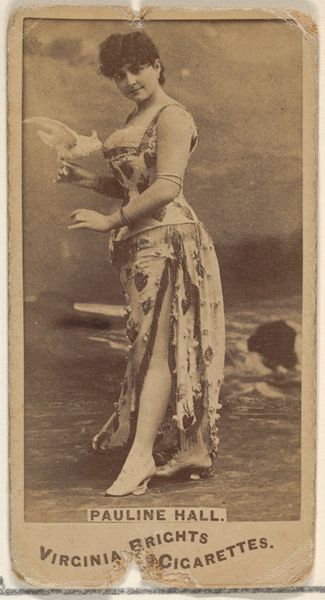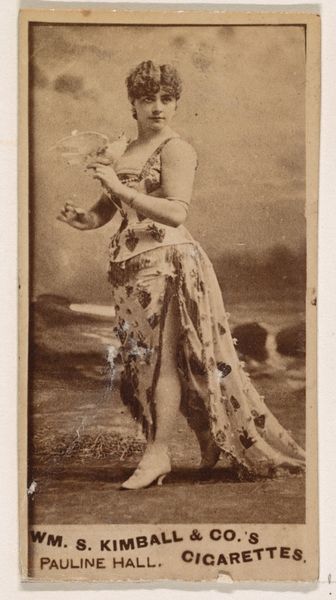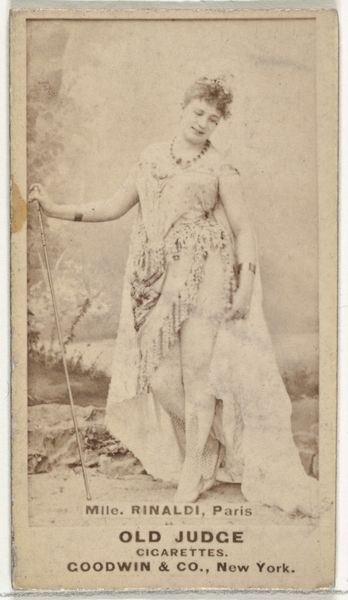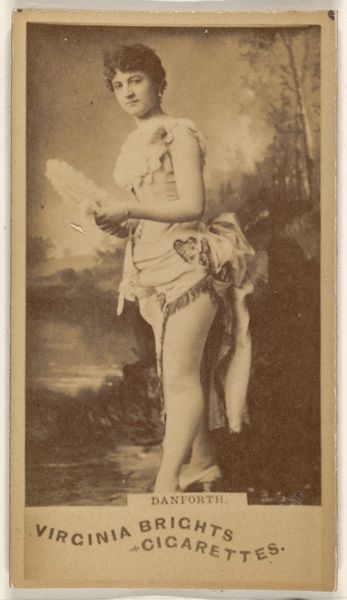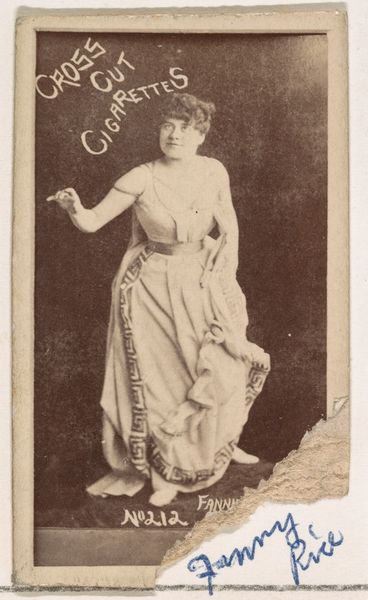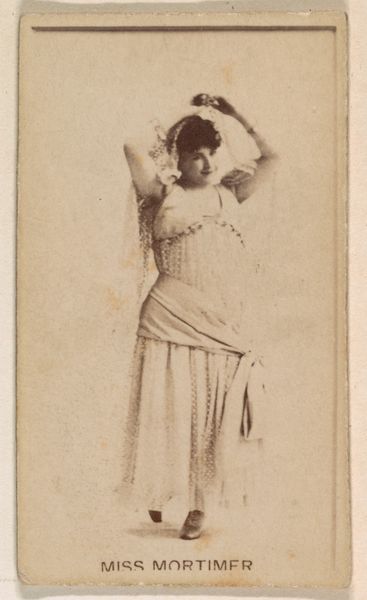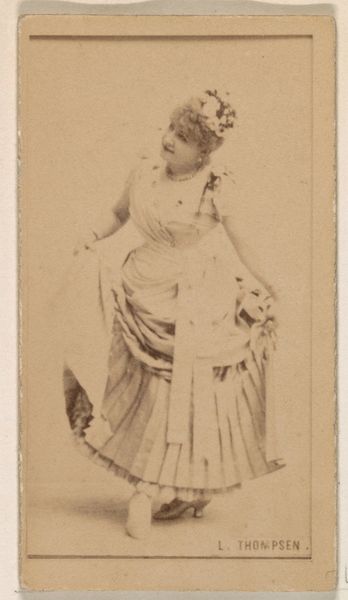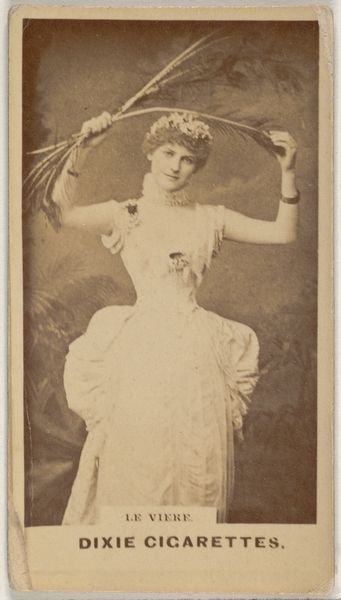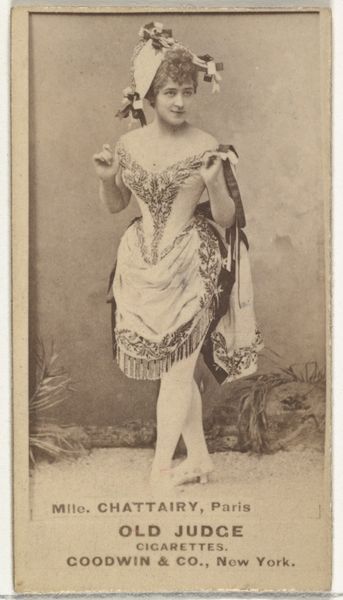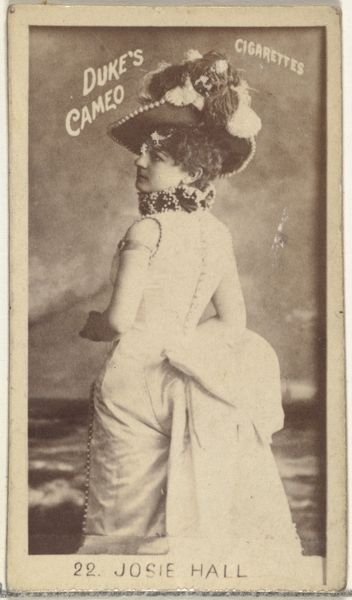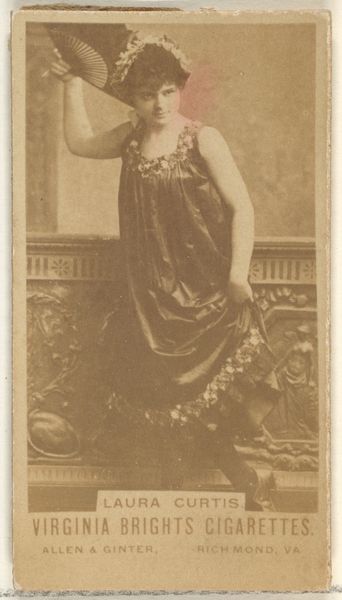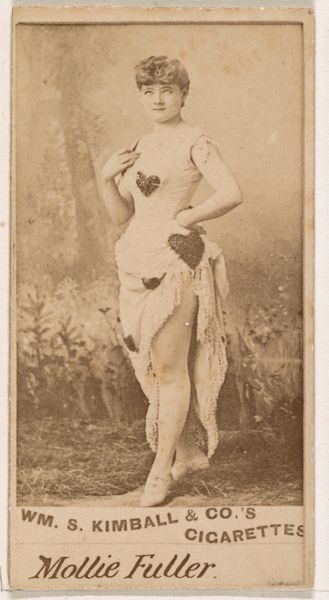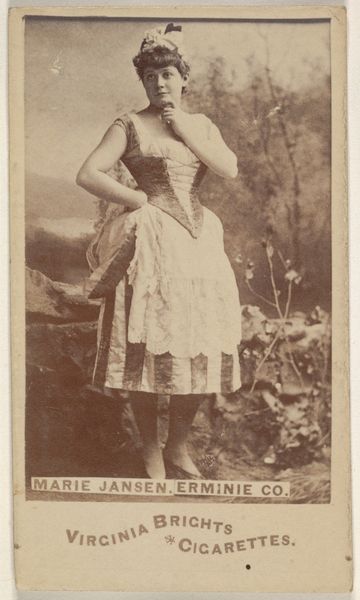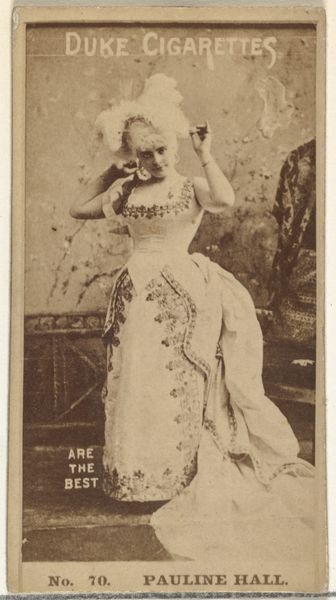
Card Number 168, Pauline Hall, from the Actors and Actresses series (N145-1) issued by Duke Sons & Co. to promote Cross Cut Cigarettes 1880s
0:00
0:00
print, photography
#
portrait
# print
#
photography
Dimensions: Sheet: 2 1/2 × 1 3/8 in. (6.4 × 3.5 cm)
Copyright: Public Domain
Curator: This is card number 168, Pauline Hall, from the Actors and Actresses series, created by W. Duke, Sons & Co. in the 1880s. It was made to promote Cross Cut Cigarettes. Editor: Immediately, I'm struck by the contrast between the seeming glamour of the subject and its actual purpose – a promotional tool. It evokes a complex tension, like a stage performer caught between artistry and commercialism. Curator: Indeed. Let's consider the means of production. These cards, chromolithographs derived from photographs, were essentially mass-produced objects distributed with cigarettes. They blurred the lines between advertising, collecting, and, arguably, art. Editor: The very accessibility of this card challenges the elitism inherent in traditional art circles. This image, readily available in everyday settings, democratizes representation while simultaneously promoting a habit with significant social consequences. Where is the autonomy for the woman represented? Curator: It also embodies the Japonisme aesthetic popular at the time, especially in its use of portraiture. We can investigate it as part of the history of celebrity, of consumer culture and advertising. It tells us so much about 19th century entertainment and commerce. Editor: But, this representation also needs scrutiny. The emphasis here on physical appearance speaks volumes about how women performers were valued, often objectified as mere commodities. There's a palpable sense of performance, yet that performance is serving the demands of a male-dominated industry. Who benefited? Curator: Exactly. It’s an interplay between performer, company, and consumer. The cigarette cards are about commerce and consumption. Pauline Hall herself, elevated as an actress, becomes intertwined with this process. Editor: It forces a look into these questions of identity, labor, and the insidious ways that consumerism shaped those identities. What narratives did this enforce, and whom did they benefit? This opens crucial conversations around visibility, exploitation, and power structures within the entertainment industry, and it demands a deeper analysis of this specific moment in history. Curator: By considering these kinds of artifacts and interrogating them we can challenge preconceptions and deepen our understanding of visual and material culture. Editor: By approaching artworks like this one with nuanced and interdisciplinary readings, we have a means for engaging with critical, socially conscious discourse about labor, representation, and its implications on those whose images and contributions were co-opted.
Comments
No comments
Be the first to comment and join the conversation on the ultimate creative platform.
